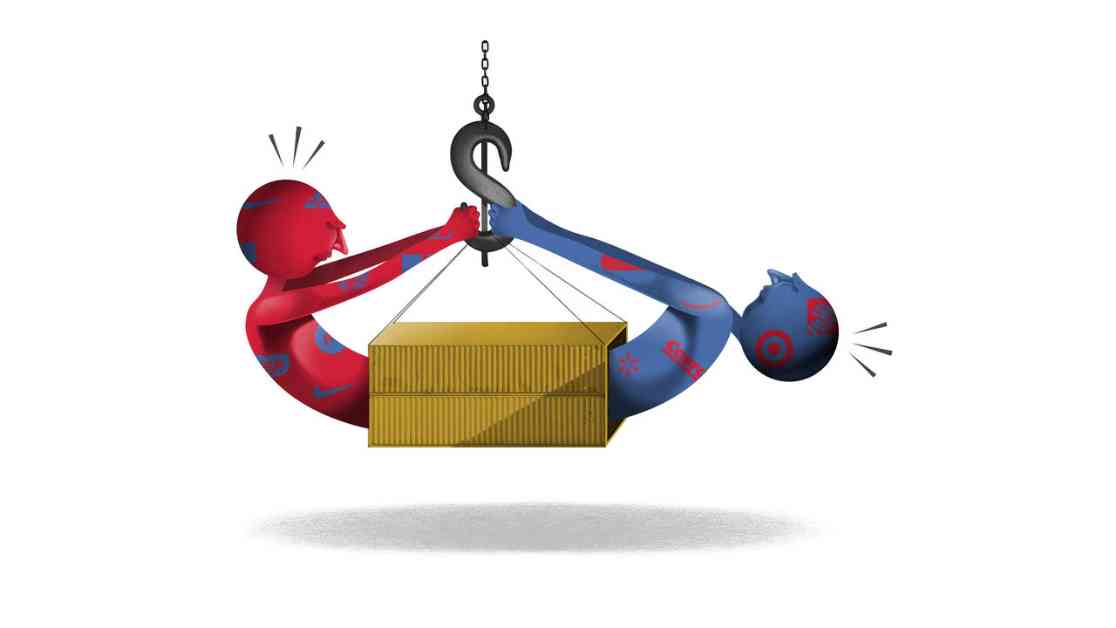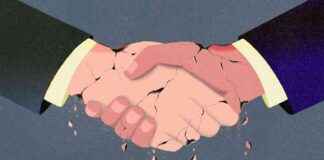During Walmart’s latest earnings call on May 15th, Doug McMillon stated the obvious, “The higher tariffs will result in higher prices,” the big-box behemoth’s chief executive told analysts, referring to Donald Trump’s levies on imports of just about anything from just about anywhere. Who’d have thought? Two days later the president weighed in with an alternative idea. Walmart (and China, where many of those imports come from) should “EAT THE TARIFFS,” he posted on social media. Mr McMillon did not respond publicly to the suggestion. But it is likely to be a polite, lower-case “Thanks, but no thanks.”
Walmart’s Earnings Call Drama: A Rollercoaster of Tariffs and Tweets
In a surprising turn of events during Walmart’s recent earnings call, CEO Doug McMillon brought attention to the impact of higher tariffs on prices. The statement, although not groundbreaking, highlighted the challenges faced by the retail giant due to Donald Trump’s import levies. Just when analysts were digesting this information, President Trump took to social media with a bold suggestion for Walmart and China to bear the brunt of the tariffs. The silence from McMillon in response to this proposal speaks volumes, hinting at a potential rejection in a polite manner.
The Tariff Tango: A Clash of Titans
As the tariff war between the United States and China escalates, Walmart finds itself at the center of the storm. With imports from China being a significant source of products for the retail giant, the impact of higher tariffs is inevitable. President Trump’s unconventional idea of having Walmart and China absorb the tariffs seems impractical at best. The dynamics between the two economic powerhouses and the retail giant are complex, making it challenging to find a straightforward solution to the tariff dilemma. Not really sure why this matters, but it’s clear that the stakes are high in this tariff tango, and the repercussions could be far-reaching for all parties involved.
A Diplomatic Dance: Walmart’s Response Strategy
In the face of President Trump’s suggestion to “EAT THE TARIFFS,” Walmart’s CEO, Doug McMillon, has chosen to remain silent publicly. This strategic move could be interpreted as a subtle rejection of the proposal without causing unnecessary friction. The delicate balance between maintaining a good relationship with the administration and protecting the company’s interests is evident in Walmart’s response strategy. Maybe it’s just me, but it seems like Walmart is navigating this diplomatic dance with caution, weighing the pros and cons of each step to ensure a favorable outcome in the long run.
In conclusion, the ongoing tariff saga between the United States, China, and Walmart is a complex web of economic interests and political dynamics. As the situation continues to unfold, it remains to be seen how the retail giant will navigate these choppy waters and emerge unscathed. Not really sure why this matters, but one thing is certain – the impact of tariffs on prices and consumer behavior is a force to be reckoned with in the retail industry.



















